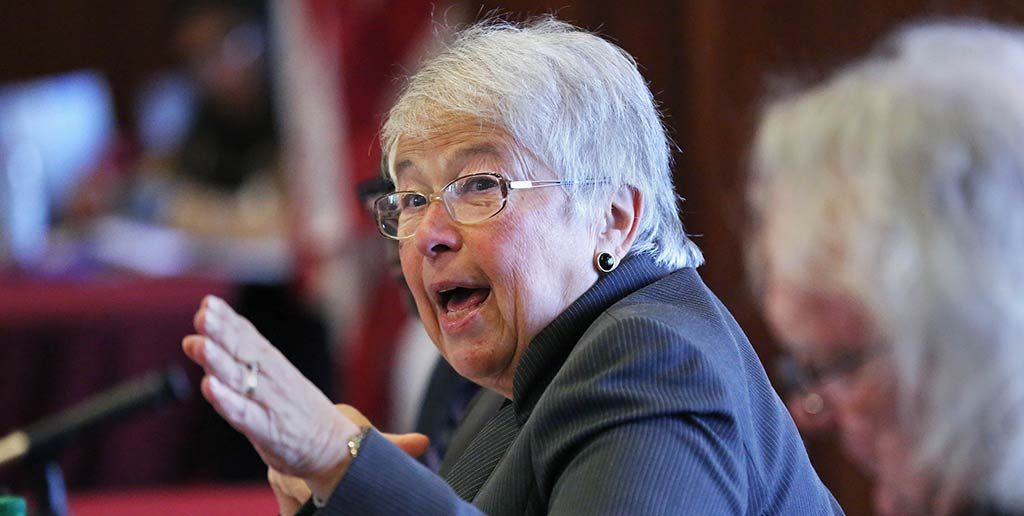Carmen Fariña was in her second year as a school principal when, one day, a teacher came into her office crying profusely. Why? “Someone stole my bulletin board idea,” the teacher said.
“I said, ‘Thank God, you should be flattered,’” said Fariña, now the chancellor of the New York City Department of Education.
She told the story on March 24 at a Fordham event to drive home the importance of collaboration among educators, as opposed to the closed-door attitude that has prevailed in the past.
“If you had a good idea as a principal, you were encouraged not to share it with somebody else,” she said. “Good principals make sure that teachers share with each other. Teachers need to be working with each other in some format to develop plans for making teaching better throughout the school.”
Fariña delivered the keynote address at the ninth annual leadership conference held by Division of Educational Leadership, Administration and Policy at Fordham’s Graduate School of Education (GSE). She also stressed collaboration across schools, not just within them, referring to the city’s Learning Partners program that brings schools together to share strategies.
“When you have to explain your practices, you get better at what you do,” she said.
She emphasized the need for principals to visit classrooms frequently, know who the best and worst teachers are, and overcome any reluctance to “writing up” a teacher when necessary.
“That’s not to say that we want to be on this bandwagon to be nasty, but we really also need to have high standards for ourselves,” rather than having them imposed from without, she said.
“The kids are why you’re there,” she said. “The students all deserve a good teacher.”
Principals should “be humble” to help build trust within schools, she said: “Have one-on-one conversations with everyone in your building. Ask people, ‘What can you do better? What can I do to help you? What is it that’s keeping you from being a more effective teacher?’ And make sure that when you get those answers that you direct your leadership to making sure those people feel you’ve heard it and answered it.”
“This is not about being ‘king of the hill’ or being the autocrat in the building,” she said.
She appeared alongside James Hennessy, PhD, dean of GSE, and Ernest Logan, president of the city’s Council of School Supervisors and Administrators.
Logan asked what Fariña will do in her second year to ensure that people at the school level get the support they need when they seek help from the city bureaucracy.
Fariña said the city has 15 new superintendents better prepared to answer principals’ questions, and also seven new borough field directors along with teams whose expertise is more tailored to each borough’s educational needs.
In response to a question from Hennessy about how the education department will partner with schools of education, she cited the need for specialization: in teaching autistic children, for instance, as opposed to those who have handicaps or learning disabilities. Also needed, she said, is expertise in teaching “dual” populations in schools that serve gentrifying areas.

